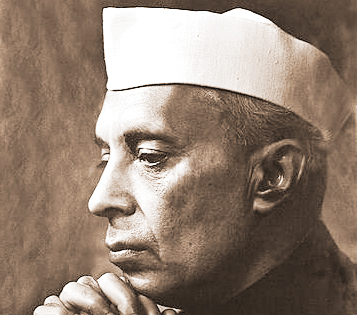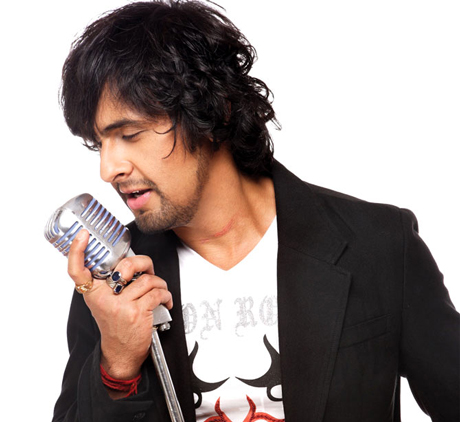Bollywood Masala Mix

By VK Cherian
The first prime minister of India, Jawaharlal Nehru, is known for his development model and how it shaped the country. But an aspect that is not often highlighted is his contribution to the field of Indian cinema. Nehru was a known cinephile who not only played an integral part in the emergence of Bollywood, but also supported and encouraged the genre of ‘films with a message’.
This was particularly relevant, as has been pointed out by Aruna Vasudev, a documentary filmmaker and an eminent scholar on Asian cinema, in her book, The New Indian Cinema (1986). She wrote that until 1951, cinema was ‘treated at worst as a reprehensible, though unavoidable, social catastrophe, at best a barbarous pastime for the uncultured’ and gave the entire credit of the development of the Indian film industry to the Film Enquiry Committee (FEC) set up by Nehru in 1949. The committee examined the state of the film industry and proposed measures to further its development along desirable lines.
While the government focused on the development of post-Independent India, Nehru did not fail to include the film sector as part of his vision. Based on the FEC report, he called for a national seminar in 1955. With BN Sircar as the chairman, Devika Rani as the executive director and Prithviraj Kapoor as the director, the six-day seminar offered recommendations for an institutional structure, such as training, archiving and funding of films for new talent to change the course of Indian films.
Films, development and diplomacy
While some saw cinema as a catastrophe, Nehru viewed it as a tool for the education and development of the country’s identity. During his inaugural speech at the first International Film Festival of India in January 1952, Nehru stressed the need for more cultural interventions in the field of films. ‘Film has become a powerful influence in people’s lives. It can educate them rightly or wrongly… I mean that they should introduce artistic and aesthetical values in life and encourage the appreciation of beauty in all its aspects. I hope that films which are just sensational or melodramatic or such as make capital out of crime, will not be encouraged. If our film industry keeps this ideal before it, it will encourage good taste and help pave its own way in the building of a new India...,’ he said.
Nehru realised the need for aligning the Indian film sector with the best of global trends and invited Parsi polymath and filmmaker Jean Bhownagary to be the information adviser to the newly formed Indian government in 1951. In fact, it was Bhownagary who had organised the first International Film Festival of India in 1952. Furthering this vision of promoting Indian creative arts through cinema, Nehru then brought in British film scholar Marie Seton – an old associate of Nehru’s confidant, Krishna Menon.
Seton landed in India in the summer of 1955 and played a major role in the governmental acceptance of Satyajit Ray’s first film Pather Panchali (1955). She became Nehru’s and his daughter Indira Gandhi’s eyes and ears on Indian films, lecturing on film appreciation across the country, their emergence on the global map and unified the sporadic film society activity in cities across India.
Under Nehru’s leadership, the government laid the foundation for cataclysmic changes in Indian films over the decades. These included the formation of the Film Finance Corporation (FCC) in 1960 [which became the National Film Development Corporation (NDFC) in 1975], establishment of the Film and Television Institute of India (FTII) at Pune in 1960 and the formation of the National Film Archives of India in 1964. ‘With the FFC’s policy decision in 1968 to start giving loans to new film-makers for “small budget, offbeat” films, the means of production were radically expanded and the ground work for arrival of alternate cinema was laid,' Vasudev wrote in her book.
Ever the statesman, Nehru was also well-versed with the skill of using the appeal of film stars as a tool of diplomacy. He would often ask filmmakers KA Abbas, Prithviraj Kapoor, Raj Kapoor and actor Nargis to lead and be part of cultural delegations abroad. Fuelling the fascination of countries such as Russia and Egypt with Indian films, the inclusion of members of the film fraternity was significant in international diplomatic relations.
Nehruvian ideals in cinema
‘Apart from the policies relating to films, Nehru’s “occidental” impulses in bringing modernity to the traditional society emerging from the yoke of colonialism influenced themes in films of people like KA Abbas and Chetan Anand in the 1950s,’ said Darius Cooper, Professor of Literature and Film and Humanities in English of San Diego Mesa College, USA. He focuses on two films from 1954 that literally presented ‘Chacha’, or Uncle Nehru, and how children responded to the Nehruvian utopia of the first Five-Year Plan. In Raj Kapoor’s Boot Polish, the orphaned brother and sister go from the shameful act of begging to the more honest activity of boot polishing. This symbolised Nehru’s vision for the inclusion of all marginalised communities. And Chetan Anand’s Taxi Driver, which represented the maligned Anglo-Indian community as actual characters in the film’s narrative. Even Shri 420 was a ‘weak stereotypical critique of Nehru’s urbanised progressive schemes’.
Thus Nehru not only initiated policies but also influenced the creativity of a host of artists in filmmaking as well. When Nargis attacked Satyajit Ray’s Pather Panchali for selling Indian poverty abroad, Nehru justified the ‘poverty portrayed with empathy’ in the film, influencing national acceptance. All these decades later, Ray’s debut film is widely recognised among the all-time 100 best global films. Indeed, Nehru inspired and promoted a generation of creative artists in independent India, many of whom such as Ray, went on to make their mark on the global map of films.
(VK Cherian is a senior media professional, film society activist and author of India’s Film Society Movement: The Journey and its Impact [Sage, 2017]).

The makers took to Twitter to make the announcement, while also sharing a few pictures from the launch.
Directed by Hemanth Madhuka (Mumbai 125 KM and Vastadu Naa Raju), Silence also stars Michael Madsen of Kill Bill fame in an important role. Shalini Pandey, Srinivas Avasarala, Anjali and Subba Raju play the supporting cast.
A source close to the unit says that Anushka will be seen as a deaf-mute NRI businesswoman in the crime thriller. The makers have reportedly planned a 60-day schedule in Seattle to shoot a large part of the film.
Silence will have music by Gopi Sunder.

He has been outspoken about many topics like playing the national anthem in public places, the #MeToo movement and azaan loudspeakers.
He has also shown interest in many social causes. In the past, he had extended his support to the transgender community, held a charity concert to raise funds to educate tribal children, did a Unicef charity project, worked towards eliminating malnutrition in India and much more.
Asked if politics was on his mind, Sonu told IANS news service via email without mentioning the name of any political party: "I am not ready for politics right now. I politely declined the offer which I got."
The singer has congratulated Prime Minister Narendra Modi after his landslide victory in the Lok Sabha elections. Apart from welcoming him back, he had also sung the verse "Shyam Ke Rogan Rele" for a web series on Modi. Was there extra pressure on him as the project was based on the Prime Minister?
"No pressure at all. It's a song like any other song and I give equal importance to all the songs. This was no different," said the "Kal ho naa ho" hitmaker.
Gigs have been keeping him tied up as well. Last month, he went on his 18th US tour.
He felt that a lot has changed over time.
"With time, you change as a person, a performer, the technology changes, the taste of the audience changes, the preference etc. But one simple thing you have to keep in mind, especially in places like the US and Canada, there is a lot of attention given to the sincerity of the performer," said Sonu.
"In any other country, including India, one can still get away with somewhat average singing packaged with great production. But in America, one has to keep doing his or her best in order to attract the crowds, especially for the 18th time in 24 years.
"It helps me give my best and it's a heart-warming experience to know that I have been doing something good for the past two-and-a-half decades," added the National Award winner.
As an artiste, he has always maintained that he doesn't work towards a particular thing or task.
"In the case of collaborations, my last song 'Hall of fame' with Jason Goldstein and MC Yogi released a couple of months ago and there are other talks going on as well. There is a wonderful singer from Poland...probably some collaboration with her too but it's too early to talk about. This year, I'm mostly busy with concerts," he said.
As for the Indian music industry, he doesn't believe that "we are lacking in anything. The American music industry is great and so is Indian music industry. Probably, the only thing that I would have appreciated in India would be that radio stations play independent music and not just film music".
He said playback singing is majorly done in India and Pakistan, which he thinks is "great because this is the uniqueness and flavour of the countries. But we must take into account the non-film music and I hope in the years to come, our radio stations understand the value of independent music and we hear it more often on mainstream radio," he added.